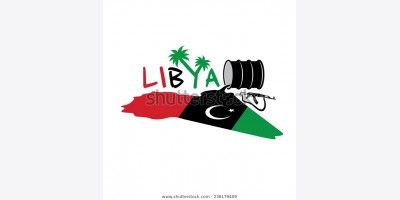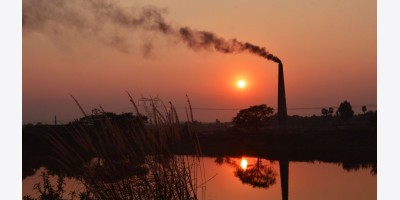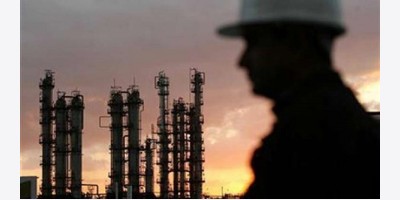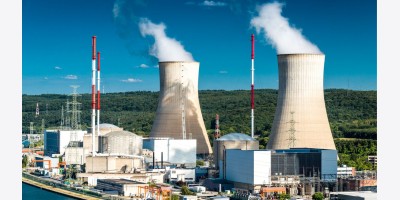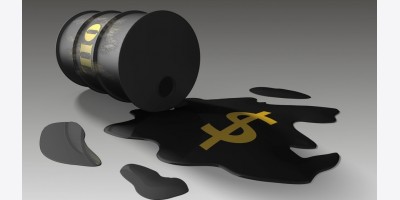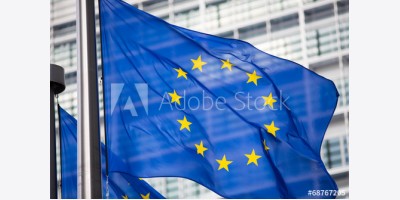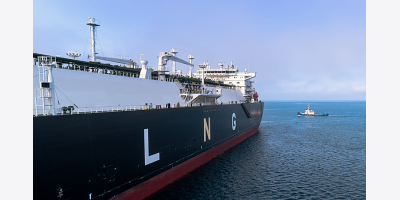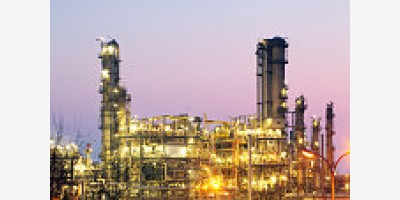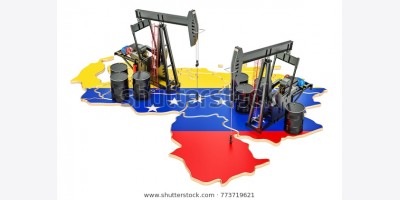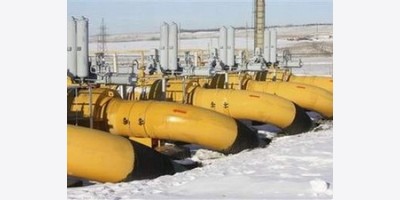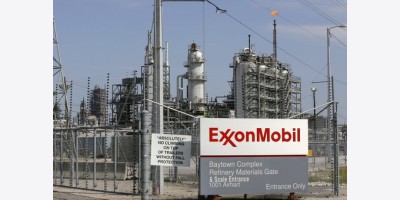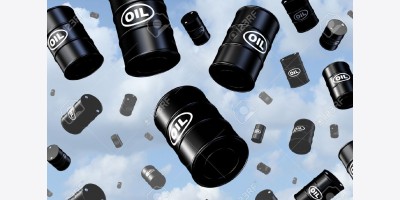By Moming Zhou May 26, 2014 6:01 AM GMT+0700
U.S. crude inventories declining from a record before the Memorial Day weekend spurred speculators to increase bullish bets on oil for a second week.
Hedge funds raised their net-long position in benchmark West Texas Intermediate futures by 4.1 percent in the week ended May 20, U.S. Commodity Futures Trading Commission data show. Prices climbed to a one-month high.
Crude supplies fell the most in four months in the week ended May 16, the U.S. Energy Information Administration said. Refineries produced a record amount of gasoline before the holiday, the start of the summer driving season. AAA, the largest U.S. motoring group, expects it to be the busiest weekend since 2005. Today is Memorial Day in the U.S.
“The decline in crude stocks, particularly after weeks and weeks of build, gave the impetus higher to WTI prices,” Harry Tchilinguirian, BNP Paribas SA’s London-based head of commodity markets strategy, said by phone on May 23. “The market chose to focus on the inventory figure for crude.”
WTI futures gained 74 cents to $102.44 a barrel on the New York Mercantile Exchange in the period covered by the CFTC report. They settled at $102.61 on May 19, the highest since April 21. Prices advanced 61 cents to $104.35 on May 23.
Oil Inventories
U.S. crude supplies decreased 7.23 million barrels in the week ended May 16 to 391.3 million, the biggest decline since Jan. 10, according to the EIA. Stockpiles reached a record 399.4 million on April 25.
The drop came as imports fell and refineries used 15.9 million barrels a day of crude, up for the first time in four weeks. Gasoline production reached 9.59 million barrels a day, the highest seasonal level in EIA data starting in 1982.
Rising demand from refineries reduced supplies in the Gulf Coast region, known as PADD 3, where more than half of U.S. refining capacity is located, to a one-month low.
“People are expecting continued declines in U.S. crude oil inventories because of high refinery runs to meet gasoline demand.” Michael Lynch, president of Strategic Energy & Economic Research in Winchester, Massachusetts, said by phone on May 23. “Travel on the holiday weekend is going to be up and that makes it more bullish for oil.”
Holiday Travel
AAA, based in Heathrow, Florida, said May 16 it expects 31.8 million people to travel 50 miles or more by car over the holiday weekend.
Gasoline demand increased to 9.19 million barrels a day in the week ended May 9, the most since Nov. 1, EIA data showed. Consumption was 9.17 million in the seven days ended May 16.
In other markets, net longs on U.S. natural gas slid 11,106 to 340,011. The measure includes an index of four contracts adjusted to futures equivalents: Nymex natural gas futures, Nymex Henry
Hub Swap Futures, Nymex ClearPort Henry Hub Penultimate Swaps and the ICE Futures U.S. Henry Hub contract.
Nymex natural gas rose 19.4 cents, or 4.5 percent, to $4.552 per million British thermal units during the report week.
Money managers’ bullish wagers on U.S. ultra-low-sulfur diesel gained 3,436 to 28,410. The fuel climbed by 0.52 cent to $2.9492 a gallon in the report week.
Bullish bets on gasoline fell 1,904 to 58,819 futures and options. Futures gained 3.38 cents, or 1.2 percent, to $2.964 a gallon on Nymex in the reporting period.
Pump Prices
Regular gasoline at the pump rose to $3.656 a gallon nationwide on May 22, the highest level since May 9, according to AAA. The fuel will average $3.58 from Memorial Day to Labor Day, the same as last year and 3 cents higher than in 2012.
Prices may drop about 15 cents after the holiday through the end of June as production outpaces demand, Michael Green, a spokesman for the AAA in Washington, said by phone on May 22.
Hedge funds and other money managers raised net-long positions in WTI by 12,798 to 323,993 futures and options in the week ended May 16, the biggest gain since April 8, the CFTC reported. Long positions rose 13,110 and shorts grew 312.
“Inventories were a big part of what’s happening,” Phil Flynn, senior market analyst at the Price Futures Group in Chicago, said by phone May 23. “It’s been a long winter and people want to get out, so demand is going to be pretty good.”
To contact the reporter on this story: Moming Zhou in New York at mzhou29@bloomberg.net
To contact the editors responsible for this story: Dan Stets at dstets@bloomberg.net Bill Ban
Sale of Kurdish Oil to Europe Nations Angers Iraq Government
By Selcan Hacaoglu and Ali Berat Meric May 23, 2014 10:14 PM GMT+0700
More than one million barrels of Kurdish oil were shipped from Turkey to Europe yesterday, Turkey’s energy minister and the Iraqi Kurdish administration said, prompting Iraq to try and block the transaction.
The oil was despatched from the Turkish Mediterranean oil terminal at Ceyhan at 10 p.m. yesterday, and was probably destined for Italy or Germany, Turkey’s Energy Minister Taner Yildiz said today. Iraq called the sale of the oil without the consent of its oil ministry “illegitimate.”
Iraq began arbitration against the government of Turkey and a terminal operator in Ceyhan to prevent the transport, storage and loading of crude pumped directly by the Kurdistan Regional Government to Turkey, according to an e-mailed statement from Iraq’s Oil Ministry.
The ministry and its official marketing company, SOMO, said yesterday that they “reserve the right” to embark on legal proceedings against companies loading Kurdish oil from Ceyhan without approval from authorities in Baghdad.
The Kurdistan Regional Government, which controls the semi-autonomous Kurdish region in northern Iraq, said the sale was in line with the Iraqi constitution.
Revenues will be deposited in a KRG-controlled account at Turkey’s Halkbank and “treated as part of the KRG’s budgetary entitlement under Iraq’s revenue sharing and distribution as defined” the 2005 charter, the regional government said. “The KRG will continue to exert its rights of export and sell oil independently of SOMO,” it said in a statement posted on an official website.
Federal Approval
“We don’t support oil exports from any part of Iraq without the appropriate approval of the federal Iraqi Government,” Marie Harf, a US State Department spokeswoman, told reporters in Washington yesterday.
The Iraqi Kurdish administration said it remains committed to negotiate in good faith with its counterparts in Baghdad to reach a comprehensive settlement on oil issues. It said “5 percent of the sales revenue will be set aside in a separate account for reparations” to meet Iraq’s continued United Nations obligations.
To contact the reporters on this story: Selcan Hacaoglu in Ankara at shacaoglu@bloomberg.net; Ali Berat Meric in Ankara at americ@bloomberg.net
To contact the editors responsible for this story: Andrew J. Barden at barden@bloomberg.net Mark Williams, Caroline Alexander
By Nidaa Bakhsh May 23, 2014 11:02 PM GMT+0700
Trees sit on the horizon in Fernhurst, West Sussex. The Weald basin, covering counties... Read More
Shale rock underneath some of the wealthiest counties in southern England may contain billions of barrels of oil, a government report said.
The Weald basin, covering counties south of London including Surrey, Sussex and Kent, may have oil in place of as much as 8.6 billion barrels, according to a report published today by the British Geological Survey. It didn’t say how much could be extracted profitably. The U.K.’s current extractable oil reserves are 3.1 billion barrels, data by BP Plc (BP/) show.
The report is likely to add to the controversy about drilling for shale oil and gas in the U.K. The government wants to develop the resources to cut energy costs and boost the economy. Opponents say the process of hydraulic fracturing, using high volumes of water, sand and chemicals to drill shale, can damage the environment.
Last year, the BGS said the Bowland basin, which extends across east and northwest England, may hold as much as 1,300 trillion cubic feet of gas. That’s enough to meet demand for almost half a century with extraction rates similar to U.S. fields, according to Bloomberg calculations.
The U.K. government has offered tax breaks to drillers to stimulate the shale industry amid rising fuel imports and declining reserves from the North Sea, which has yielded about 42 billion barrels since the 1970s.
No Shale Gas
The likely range of shale oil in place in the Weald is 2.2 billion to 8.6 billion, the BGS report said, adding that shale gas potential in the basin is limited.
IGas Energy Plc (IGAS), a shale explorer with some operations in southern England, rose 3.9 percent to 134 pence by the close in London.
In the latest move to spur the industry, the government said today it plans to “simplify” access to property for the shale and geothermal industries. A consultation on the matter will be open for 12 weeks.
“The new proposals would simplify procedures which are costly, time-consuming, and disproportionate for new methods of underground drilling,” the Department of Energy and Climate Change said in an e-mailed statement. “Oil, gas and deep geothermal companies will be able to explore their potential, and will in return provide a voluntary community payment for access.”
Opponents of drilling criticized the plans, saying they could damage the political prospects of the ruling Conservative Party in areas of traditional support.
“Stripping away people’s property rights while trying to kick off a Klondike-style shale oil rush in the Home Counties is a highly toxic policy mix,” Greenpeace said in an emailed statement.
In October, the group encouraged landowners to use trespass laws to block exploration, saying drilling horizontally under people’s land was illegal unless the property owner gave consent. Protests last summer at Balcombe in the south hampered drilling by Cuadrilla Resources Ltd.
To contact the reporter on this story: Nidaa Bakhsh in London at nbakhsh@bloomberg.net
To contact the editors responsible for this story: Will Kennedy at wkennedy3@bloomberg.net Ana Monteiro, Randall Hackley
Billionaire Poroshenko Triumphs in Ukrainian Elections
By Daryna Krasnolutska, Daria Marchak and Volodymyr Verbyany May 26, 2014 4:56 AM GMT+0700
Ukrainian presidential candidate Petro Poroshenko speaks to supporters during an election campaign rally in Lviv, on May 22.
Billionaire Petro Poroshenko is a former Ukrainian economy minister who leads in opinion polls for an election planned for May 25.
While most in Ukraine’s easternmost regions didn’t vote, Poroshenko’s success was welcomed in the U.S. and Europe.
Ukrainians elected billionaire Petro Poroshenko as president, handing him the task of stemming deadly separatist violence that’s threatening to rip the former Soviet republic apart.
Poroshenko garnered more than half of yesterday’s vote to avoid a runoff with as much as 57.3 percent support, two exit polls showed. Ex-Prime Minister Yulia Tymoshenko came second of the 21 candidates with 12-13 percent backing, the surveys showed. While most in Ukraine’s easternmost regions didn’t vote, Poroshenko’s success was welcomed in the U.S. and Europe.
“The first-round victory shortens the period of uncertainty and stabilizes the system of governance,” Yuriy Yakymenko, head of political research at the Razumkov Center, said by phone from Kiev. “Ukraine gets a legitimate president and the tools to influence the situation in the east.”
The government wants the vote to draw a line under the rule of ousted President Viktor Yanukovych, the Russian-backed leader who fled for Moscow in February after deadly street protests in support of closer European ties. President Vladimir Putin, who doesn’t recognize the government in Kiev, has pledged to work with the winner. The U.S and its allies said they’d tighten sanctions against Russia if voting was disrupted.
“Our first step will focus on ending the war, chaos and disorder,” Poroshenko told reporters at his campaign headquarters in Kiev, pledging to visit the troubled eastern regions and to work with Russia to resolve the conflict. He said he’d call early parliamentary elections this year.
War, Chaos
Poroshenko, who has a fortune of $1 billion according to the Bloomberg Billionaires Index, has flaunted his business acumen and promised to boost wages by nurturing employment and gearing the economy toward Europe through a trade pact. He reiterated yesterday that he’d sell his assets that include the Roshen chocolate company and is hiring an investment bank to help with the sale.
The tycoon is known for his ability to work with different camps. He was foreign minister under President Viktor Yushchenko, the hero of the 2004 Orange Revolution that helped overturn Yanukovych’s election win and served as economy minister under Yanukovych, who in February was ousted in deadly protests sparked by his snub of a European integration accord.
‘Reinstall Order’
Ivan Hrynko, a 27-year-old doctor, said at a Kiev polling station that the he voted for Poroshenko because the tycoon has the people’s support and “will be able to reinstall order.”
“There’s hope he’ll be able to resolve the situation in the east,” said Hrynko, who wore a yellow and blue Ukrainian flag T-shirt and had a small flag painted on his cheek.
Poroshenko’s victory is “strongly” positive for bond markets in Ukraine and Russia, Vladimir Miklashevsky, a Helsinki-based strategist at Danske Bank (DANSKE), said by phone. The hryvnia is this year’s worst-performing currency, having plunged 31 percent against the dollar, data compiled by Bloomberg show.
U.S. President Barack Obama said the election is another “important” step forward in Ukraine’s efforts to unify the country and ensure all citizens’ concerns are addressed.
“The U.S. looks forward to working with the next President, as well as the democratically elected parliament, to support Ukraine’s efforts to enact important political and economic reforms,” he said in an e-mailed statement.
‘Important Day’
German Foreign Minister Frank-Walter Steinmeier spoke of a “very important day,” telling ARD television that the poll results are “a clear signal also to the separatists that the great majority of people in Ukraine want unity, freedom and democracy -- and not the splitting up of Ukraine.”
There was no immediate reaction from Russia.
Ukraine held the vote amid separatist violence that erupted after Russia annexed the Black Sea Crimean peninsula in March. It says the turmoil is orchestrated by the government in Moscow, which denies the accusation. Putin last week ordered a troop pullback from his neighbor’s border after military drills that stoked tensions.
Clashes continued yesterday in the Luhansk region, where pro-Russian gunmen sought to stop the vote. One person was killed in the town of Novoaydar, according to the Interior Ministry. An Italian journalist died May 24 amid fighting in the Donetsk city of Slovyansk, the Foreign Ministry in Rome said.
With security a major concern, less than a third of polling booths in the Donetsk and Luhansk regions opened yesterday, the local administrations said on their websites. Polling stations remained closed in the two regional capitals.
‘Not Ideal’
“I hoped until the last moment that we’d get to vote,” said Tatiana Kostenko, a teacher at the Donetsk national technical university who planned to vote for Poroshenko. “The authorities could have done more to secure the elections.”
The largely Russian-speaking Donetsk and Luhansk regions are home to 5.1 million voters, a seventh of Ukraine’s electorate, according to Central Electoral Commission data. Separatists there have abducted voting officials and issued death threats, according to the Commission.
An angry mob in Donetsk descended on the residence of Rinat Akhmetov, Ukraine’s richest man. The billionaire last week enraged the militants by urging people, including his 300,000 employees in eastern Ukraine, to stand up against the rebels.
The Ukrainian army and separatists maintained positions along the road from Donetsk to Krasnoarmiysk yesterday. A shot-up car and a burned-out restaurant were evidence of fighting last week.
“It’s not ideal, but the people of Ukraine have done everything in their power to express their will,” U.S. Senator Kelly Ayotte, a New Hampshire Republican observing the vote in Kiev, said by phone. “I think that this presidential election should be accepted.”
To contact the reporters on this story: Daryna Krasnolutska in Kiev at dkrasnolutsk@bloomberg.net; Daria Marchak in Kiev at dmarchak@bloomberg.net; Volodymyr Verbyany in Kiev at vverbyany1@bloomberg.net
To contact the editors responsible for this story: Balazs Penz at bpenz@bloomberg.net Andrew Langley
Argentina Turns to Next Shale Partners as Chevron Triples Output
By Adam Williams and Pablo Gonzalez May 24, 2014 2:24 AM GMT+0700
Petroliam Nasional Bhd. is among a group of producers looking to enter Argentina’s nascent shale boom, according to state-owned oil company YPF SA.
Petronas, as Malaysia’s state oil and gas company is known, is negotiating a binding deal with YPF to develop an area in southwestern Argentina’s Vaca Muerta shale formation after signing a preliminary accord Feb. 18, Doris Capurro, YPF’s director of communications, said.
“We are continuing conversations” with Petronas, Doris Capurro, YPF’s communications director, said in an interview in La Jolla, California yesterday. “They are very interested in what we are doing in Vaca Muerta, like many other companies we are holding talks with.”
Argentina is seeking partners to develop Vaca Muerta, an area the size of Belgium that holds at least 23 billion barrels of oil, according to a survey by Ryder Scott, in a bid to become energy independent. YPF’s output from the Loma Campana area in Vaca Muerta rose to 12,800 barrels a day from 4,200 after investing $1.2 billion in a pilot year with Chevron Corp.
The company, which President Cristina Fernandez de Kirchner expropriated from Spain’s Repsol SA in 2012, is also in conversations with Petroleos Mexicanos, Capurro said, without disclosing the subject of the talks. Mexico is pushing through legislation to open up its oil and gas fields, including shale, to foreign investment.
New Find
Petronas’s preliminary deal is to develop a 187-square kilometer (72 square-mile) area called La Amarga Chica in Neuquen province, northwest of Loma Campana, where the Chevron pilot may become a $16 billion project.
YPF announced this week its first unconventional discovery outside of Vaca Muerta at El Trebol in the D-129 formation.
Capurro called for changes to Argentina’s 1967 hydrocarbons law to cater to offshore and unconventional operations and greater environmental protection demands.
“The company thinks some rules of the game should be revised to include shale,” she said.
To contact the reporters on this story: Adam Williams in Mexico City at awilliams111@bloomberg.net; Pablo Gonzalez in Buenos Aires at pgonzalez49@bloomberg.net
To contact the editors responsible for this story: James Attwood at jattwood3@bloomberg.net Robin Saponar
South Sudan Chaos Halts Ex-Blackwater CEO’s Refinery Plan
0 Comments Email Print
As the former head of U.S. security company Blackwater USA, Erik Prince thrived in war zones like Iraq and Afghanistan. South Sudan, the world’s newest nation where violence erupted in December, is proving a little tougher.
Prohibitive costs, transport difficulties, political instability and growing insecurity have rendered the former U.S. Navy Seal’s plan to build an oil refinery in the north of the country unfeasible for the time being, said Sean Rump, a partner at Prince’s Frontier Resource Group. Talks this month with financiers failed to revive the project that was set to be completed by December, he said in an interview on May 18.
“We believe in the future of South Sudan,” Rump said. “If we thought it was going to be a failed state, we wouldn’t be here. But when will the trouble end and the refinery be built? We just don’t know.”
Fighting broke out in South Sudan after President Salva Kiir accused his former deputy, Riek Machar, of trying to stage a coup. At least 10,000 people have been killed and a million people are estimated to have fled their homes in the ensuing conflict, while oil production that funds 98 percent of the government’s budget has been cut by a third.
An attempt at a truce in January and another earlier this month failed to gain traction, with government and rebel forces accusing either side of violating the agreements. Parts of the country may be at risk of a famine because of a lack of funds and logistical hurdles to providing humanitarian relief, according to the United Nations humanitarian agency.
Diesel Refinery
Frontier, a private-equity firm based in Abu Dhabi, has a 12-year agreement with the South Sudanese government to build, own and then transfer to the state a 10,000–50,000 barrel per day refinery that will supply diesel to the domestic market. The landlocked nation currently imports all of its refined fuel.
“Producing 10,000 barrels per day of diesel for the domestic market is going to loosen up a lot of capital for South Sudan investment,” Rump said. “Their economy relies on importing diesel so this project will have an impact.”
The refinery is part of 44-year-old Prince’s new role as chairman of Hong-Kong listed Frontier Services Group Ltd. (500), a logistics and transport company that’s investing in Africa using cash injections from Asian investors including Citic Group, China’s largest state-owned conglomerate.
Frontier Resources has already spent $10 million on the project in partnership with Africana General Trading Ltd., a closely held South Sudanese company, and hired Pasadena, Texas-based Vintech Engineering International Ltd. to build the facility at Thiangrial, near the border with Sudan.
Viable Project
Africana Managing Director Obac William Olawo, one of South Sudan’s richest men and an economic adviser to Kiir, said he’s confident the refinery will be viable once the war ends.
Prince is “still committed to the investments, but let us get the conflict resolved,” Olawo said. “Once it is resolved we as partners are ready.”
Olawo, who runs South Sudan’s Toyota Motor Corp. (7203) dealership and ships gum arabic to Coca Cola Co. and PepsiCo Inc. through TIC Gums, the White Marsh, Maryland-based supplier, said Africana has a 25 percent stake in the project. President Kiir personally supports the plan, he said.
Frontier Resource plans to focus on “pan-African logistics, aviation services and risk management,” according to its 2013 annual report. The company wants to tap Chinese funding to the continent that is expected to total $1 trillion over the next 12 years, it said.
Mobile Assets
In April, Frontier agreed to buy 49 percent of Phoenix Aviation in Kenya for $14 million. That followed the purchase of Kijipwa Aviation, based in the Kenyan port city of Mombasa, in November.
“Our business model is centered on aviation capabilities, which support logistics operations and security for fixed and mobile assets,” Prince said in the annual report.
Prince ran Blackwater from 1997 to 2010, when the company earned an estimated $1 billion in U.S. government contracts. The company, which has since been renamed Academi, faced a U.S. congressional committee hearing into an incident in September 2007, when the company’s guards killed 17 civilians in a firefight in Iraq’s capital, Baghdad. Blackwater denied any wrongdoing.
Prince didn’t respond to e-mailed requests sent by Bloomberg via Rump for an interview. Rump said Frontier has no connection to Blackwater.
“Prince sold his stake in 2010, there is no on-going relationship,” he said. “We’re investors, we do logistics and operate in tough conditions.”
(An earlier version of this story corrected the name of Africana General Trading Ltd. in the ninth paragraph.)
To contact the reporter on this story: Ilya Gridneff in Nairobi at igridneff@bloomberg.net
To contact the editors responsible for this story: Antony Sguazzin at asguazzin@bloomberg.net Paul Richardson, Ana Monteiro
By Tara Patel and Stephen Bierman May 23, 2014 8:47 PM GMT+0700
Total SA (FP) agreed to seek shale oil in Western Siberia with OAO Lukoil (LKOD), brushing off U.S. and European sanctions against Russia over its annexation of Crimea.
Chief Executive Officer Christophe de Margerie signed the deal at the St. Petersburg International Economic Forum in a demonstration of Total’s commitment to Russia, after officials from companies including Citigroup Inc., Morgan Stanley and ASA Statoil withdrew from the meeting.
Total and Moscow-based Lukoil will set up a venture to seek so-called tight oil in the Bazhenov area of Siberia under their agreement, the French company said in a statement. Siberian shale has “huge potential,” de Margerie said. Investment in the venture will be $120 million to $150 million in the first two years, according to Lukoil CEO Vagit Alekperov.
Total says its Russian business isn’t affected by sanctions against the country, including on Gennady Timchenko, shareholder of OAO Novatek (NVTK) in which the French oil producer holds a stake. De Margerie said last week it was “business as usual” even as the U.S. and Europe ratcheted up restrictions against Russia following its annexation of the Crimean region of Ukraine. CEOs from Eni SpA and Royal Dutch Shell Plc also attended the St. Petersburg forum.
Follows Exxon
The deal with Moscow-based Lukoil is to explore and develop four licenses spanning 2,700 square kilometers (1,000 square miles) in the Khanty-Mansi Autonomous District, according to the statement. Lukoil will hold 51 percent and Total the rest, with seismic exploration planned for this year and drilling in 2015.
“Total’s entry into the Bazhenvov play, one of the world’s largest shale-oil formations, reinforces our position in non-conventional hydrocarbons,” de Margerie said in the statement.
With the accord with Russia’s second-largest oil producer, Total follows Exxon Mobil Corp. and Statoil, which already have tight-oil ventures with OAO Rosneft in Western Siberia, and Royal Dutch Shell, partnered with OAO Gazprom Neft. The French company plans billions of dollars of investment to boost output in Russia as a key part of its aim to expand global production.
As part of the program, Total says it’s sticking with plans to raise its stake in Novatek and is pushing ahead with its Yamal LNG Arctic liquefied natural gas venture. Russia may be Total’s largest oil and gas supplier by the end of the decade, Michael Borrell, senior vice-president for continental Europe and central Asia, said last month.
The country was Total’s biggest supplier after Nigeria, the United Arab Emirates and Norway last year, providing 207,000 barrels of oil equivalent a day. Total is seeking to raise the figure to about 400,000 barrels by 2020, Borrell said.
To contact the reporters on this story: Tara Patel in Paris at tpatel2@bloomberg.net; Stephen Bierman in Moscow at sbierman1@bloomberg.net
To contact the editors responsible for this story: Will Kennedy at wkennedy3@bloomberg.net Tony Barrett, John Viljoen
St Petersburg (Platts)--22May2014/633 am EDT/1033 GMT
Stable energy ties with Russia and attracting new suppliers are key to European energy security, Jean-Francois Cirelli, President of GDF Suez, said Thursday, stressing commitment to efficient relations with Russian gas giant Gazprom amid political tensions between Russia and the EU.
"Continuing to foster current supply relations with Russia as well as attracting new suppliers to the EU market should be an important element to EU energy policy," he told the St Petersburg International Economic Forum.
Cirelli called 40-year cooperation with Russia's Gazprom efficient but added "it is essential that commercial obligations are met today and tomorrow."
His comments come the day after Gazprom signed a huge 30-year gas supply deal with China as the Russian gas giant looks to diversify its customer base.
Growing tension between Russia and Europe over the crisis in Ukraine has raised concerns over Russian energy supplies and led many in Europe to call for greater supply diversification.
On Wednesday, European Commission President Jose Manuel Barroso asked Russian President Vladimir Putin to provide data on gas flows to and through Ukraine as part of finding a long-term solution to uncertainty about Russian gas flows via Ukraine to the EU.
Gazprom recently announced that from June it will only supply gas to Ukraine which the country has already paid for, following Kiev's failure to reduce mounting debts for Russian gas supplies in recent months.
There are concerns that if Gazprom cuts off supplies to Ukraine, it will take up volumes earmarked for European customers, as was the case in 2009.
Ukraine currently transits around 50% of Russia's total exports to Europe.
UKRAINE STORAGE
Asked if he believes that European companies pumping gas into Ukraine's underground facilities could be a solution to the problem to ensure that deliveries to Europe remain stable, Cirelli said he did not see it as the responsibility of European gas purchasers.
"We have no agreement with Ukraine. So we don't know Ukraine at all from a legal perspective. We're buying [gas] from Russia and this gas is delivered after the border with Ukraine. So this is not our responsibility," Cirelli told reporters on the sidelines of the forum.
GDF Suez has also been in talks with Gazprom to renegotiate the price it pays for Russian gas to better reflect the current spot price.
But Cirelli declined to comment on whether GDF Suez plans to negotiate further down the Russian gas supply price it is paying to Gazprom now but said the company is committed to diversifying as much as possible its gas supply sources.
"We don't comment on gas prices but in Europe we need competitive gas to feed our customers and our markets. So permanent search [is ongoing] to reinforce the competitiveness of gas particularly as coal is gaining ground [in Europe] at the expense of gas," Cirelli told Platts.
INFRASTRUCTURE
In his speech to forum participants, Cirelli also stressed the importance of developing EU energy infrastructure and international partnerships in such projects, calling the Nord Stream natural gas pipeline "a good example" of this.
But he said further expansion of the Nord Stream, which currently includes two lines, has yet to be justified.
"You should expand pipes when there is a market and the need. Before expanding the Nord Stream you should assess the need for a new investments, which has not been done yet. We need to see the pros and cons," Cirelli told Platts.
“What we can say is we are happy with two lines operating today, its a great advantage to Europe compared to 2009," he said.
Gazprom has said it could build a further two parallel lines of Nord Stream.
--Staff, newsdesk@platts.com
--Edited by Jeremy Lovell, jeremy.lovell@platts.com





